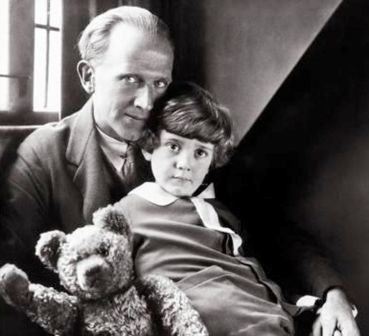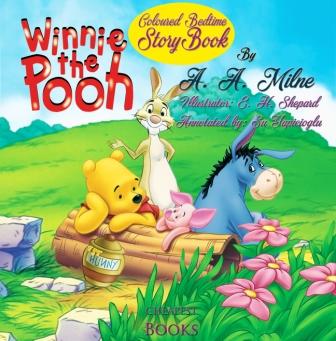More Search Results...

Milne wasn’t the only one adversely affected by Winnie Pooh’s fame. Milne’s son, who inspired the Christopher Robin hero in the story, became even more famous than his father in one aspect. An article in a magazine mentioned Milne: “He is an English playwright whose plays were successfully adapted for the stage in New York. And Christopher is Robin’s father.”
The family did not try to keep son Christopher out of the media’s attention. The letters the children wrote were delivered to him, and he and his nanny were responding to them. When he was seven, he was made to read audio recordings of books. Later, his cousin would refer to this as “Unacceptable aspects of the Pooh kingdom.” When Christopher was eight years old, he read passages from the Pooh book in front of guests and sang The Friend, and in 1929 he revived the stories in a competition.
That’s when Milne decided not to write a children’s book anymore. Milne, who has successfully changed direction before, described his decision as “bewilderment and disgust” at his child’s outrageous reputation.
“I didn’t want the real Christopher Robin to get so much fame. I don’t want CR Milne to say after a while that I wish my name was Charles Robert,” father Milne said.
In 1930, Christopher started boarding school. The fiction in the story would have based his regret on that period as an inspiration to the hero. The other kids were going to hang out with him all the time, so. His neighbors would play the gramophone he was singing, return it to Christopher when they were tired, and he’d tear it to pieces.
Truth or Fiction?
Those who never knew him pretended to know him, and he dared to judge him. On the 60th anniversary of Winnie the Pooh, literary critic Chris Powling wrote, “Has there ever been another child who suffered as much as Christopher Robin?”
To make matters worse, as Christopher noted in his memoirs, the judgments about him were based on a character that had nothing to do with him. His parents didn’t call him Christopher Robin, he called him Billy. Both father and son Milne were trying to explain that this character had nothing to do with him, but even Shepard, who illustrated the story, could not make that distinction, painting the real Christopher in his first drawings.
Christopher had a real sense of resentment towards his father during the job search after he finished college. He would accuse her of “leaving nothing but an empty reputation of standing on the shoulders of a child, stealing her name and being her son.”
Milne said he wanted to get rid of “Winnie the Pooh” as much as his son, but he couldn’t. In the story of The House at Pooh Corner, Milne didn’t know that expression would be true, writing that “There will always be a little boy and a bear playing in that magical place on the edge of the forest.”
Su Yapicioglu
Winnie The Pooh
“A FULLY COLOURED NEW EDITION OF THE 1926 CLASSIC, FEATURING FULL-COLOR VERSIONS OF THE ORIGINAL ILLUSTRATIONS BY E. H. SHEPHERD.“
More info →




























